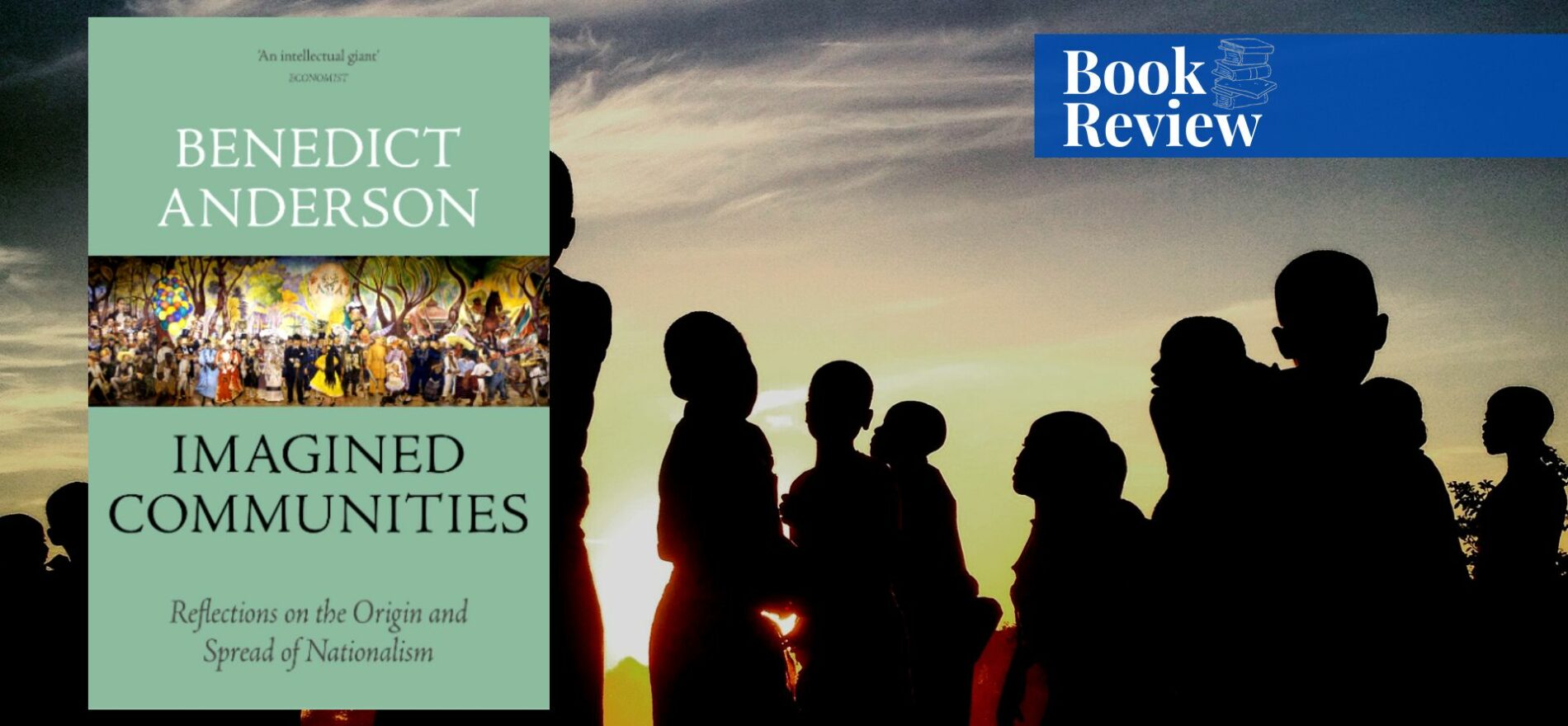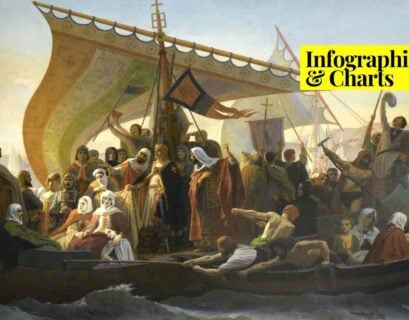Introduction
Written by notable political thinker Benedict Anderson – a professor of international studies, and government and Asian studies at Cornell University – Imagined Communities: Reflections on the Origin and Spread of Nationalism aims at exploring the origin of nationalism, a very pertinent element in contemporary global politics. First published in 1983, the book is substantiated with plenty of case studies from across the globe.
This monumental work aims at delineating the processes by which the nation came to be imagined and once imagined, adapted, and transformed. Benedict Anderson repudiates the notion that nations are something natural; instead, he asserts that a nation is a socially constructed artifact based on cherished ideas and sentiments about community, solidarity, and belonging. He says, “It is an imagined political community- and imagined as both inherently limited and sovereign.”
Rise of Nationalism
Although even in the tiniest nation, there is no way every inhabitant knows every other inhabitant, yet in the minds of everyone, there is an idea of communion that connects them and forms the imagined community. Despite the division that language, religion, and ethnicity create, there emerges a positive force of horizontal comradeship.
The author emphasizes that nationalism is not akin to political ideologies like Marxism and Fascism since the people are willing to die for the former but not for the latter. Nationalism is more close to religion than to political philosophies since both religion and nationalism attach meaning to various phenomena like connecting the living and dead.
Just as the cenotaph of an unknown soldier, a symbol of nationalism evokes reverence amongst the nation. However, the decline of religion during the 18th century (the Enlightenment era) was accompanied by the rise of nationalism as an alternative to fill the void created by the deterioration of religious modes.
The Role of Language
Imagined Communities: Reflections on the Origin and Spread of Nationalism contends that the rise of nationalism largely attributes to the role of language. Initially, the people were integrated via sacred languages like Latin, Greek, and Arabic. The believers felt connected to one another on the basis of shared language. Afterward, the people organized themselves under dynastic realms. However, with the rise of print capitalism, people started imagining themselves as secular communities. The printing press and capitalism enabled the process of vernacularization- standardization of the local languages, which laid the basis of nationalism.
Before 1500, printing was mainly done in Latin which was considered to be a civilized language, though understood only by the bilinguals. Therefore, during the 16th century, the entrepreneurs in Europe, in order to expand their market, started printing books in local languages to make them accessible to a wider audience.
Changes in the character of Latin, the Protestant Revolution, and the birth of administrative vernaculars led to the dethroning of Latin and the crowning of vernacular. Anderson writes, “Print-capitalism gave a new fixity to language, which in the long run helped to build that image of antiquity so central to the subjective idea of the nation.”
This standardization of the language by the printing press enlightened the readers about those who shared their language and those who didn’t which led to the emergence of a nationally imagined community and ultimately the fellow readers could imagine that they were part of a shared experience.
Vernacular newspapers played an important role in uniting people with common interests. Furthermore, the nationalist novels, portraying a community of citizens bounded by territory, induced the construction of an imagined community.
Nationalism and Europe
Anderson also throws light on the emergence of nationalism in America—a colony of Britain, led by educated creole elites, inspired by European Enlightenment philosophies. Democratic republics were created due to the sense of cultural distinctiveness and economic oppression which led to revolts against the rulers.
Similarly, in Spain’s case, the territories were more scattered, so every region had its own administrative organization, economy, and newspaper which evoked a national identity, and this sense of independence prompted revolution against the Spanish empire.
European linguistic revolution and revolutions in the 19th century had a significant role in sowing the seeds of nationalism. Before interacting with the other civilizations in the world, Europeans considered themselves to be superior, divine, and the only civilization. However, the encounter with other civilizations had set off the process of studying the ancient languages (known as philology) which apprised the Europeans of the pluralistic world comprising various other civilizations, more diverse and ancient than the Europeans.
Thus, the philological change gave equal status and importance to all languages leading to the Lexicographic Revolution and the speaker of these vernacular languages started forming exceptional communities, laying the basis on which nationalist organizations claimed independence.
During the 19th century, this rise of nationalism followed by the philological revolution undermined the multinational empires. Empires, in order to counter the ascent of nationalism, adopted a top-down approach and adopted a national official language, associated with the largest ethnic group, and then enforced it on the minority groups.
This attempt of the empires had been countered by the rise of nationalism amongst the minorities who wanted to be ruled by those who talked like them. Just as the process of Russification by Russia in the 19th century invited revolt on part of non-Russians.
Why Nations Sought Independence
Eventually, the author turns to the nationalist movements in Asia and Africa post-WWII and outlines three factors that led to the establishment of independent countries. Firstly, technology made the pilgrimage to Europe possible, thus enabling the colonial people to learn revolutionary ideas from Europe.
Secondly, the highly centralized education system in the colonies and thirdly, the racism in Europe strengthened the idea that people in a particular colony were compatriots since they all were detested equally. These factors, together, formed a new class of bilinguals—Western-educated intelligentsia who learned about European nationalism and therefore, drove their country towards independence.
“What I am proposing is that Nationalism has to be understood, by aligning it not with self-consciously held political ideologies, but with large cultural systems that preceded it, out of which as well as against which it came into being.”
Anderson goes on to explain the social change and different forms of consciousness that engender profound attachment and love among people for their nation and can even force people to sacrifice their lives for their country. Also, he warns about the possibility of conflict between nations sharing political philosophies since nationalism is way above political ideologies.
Analysis
In the revised edition of Imagined Communities: Reflections on the Origin and Spread of Nationalism, Benedict Anderson highlights the significance of the use of census, maps, and museums. After independence, maps and museums became a logo of national identity for subsequent nations via which they consolidated their sovereignty. The author concludes by underscoring the role of history as a tool to define the narratives of national identity by choosing what to remember and what not to.
In Imagined Communities, Benedict Anderson has elucidated the origin and analysis of nationalism. Nation has been illustrated as an imagined community, imagined both as limited and sovereign. The main emphasis has been laid on print capitalism, attributing it to the rise of nationalism. Print capitalism, via the standardization of vernaculars – the native languages –enabled the people to identify those with whom they shared language and led them to imagine themselves as a community. This indicates that nationalism is a product of modernity.
Even before the rise of nationalism, people used to connect with one another based on the commonality of the sacred language and formed religious communities which undermines the importance of language as the foundation element of imagined communities. However, despite the fact that language is important in binding the people, it is not the case always. For instance, Switzerland became unified although it lacked a common language.
Moreover, the author has explained the relationship between religion and nationalism and differentiated them from political ideologies. Although political ideologies bring the nations together – like all the socialist states siding with one another during a war – yet, the war between the socialist states like Vietnam, Cambodia, and China indicates the importance of nationalist ideology over political ideology. This demonstrates the significance of nationalism for which people readily sacrifice their lives.
If you want to submit your articles/research papers/book reviews, please check the Submissions page.
The views and opinions expressed in this article/paper are the author’s own and do not necessarily reflect the editorial position of Paradigm Shift.



















